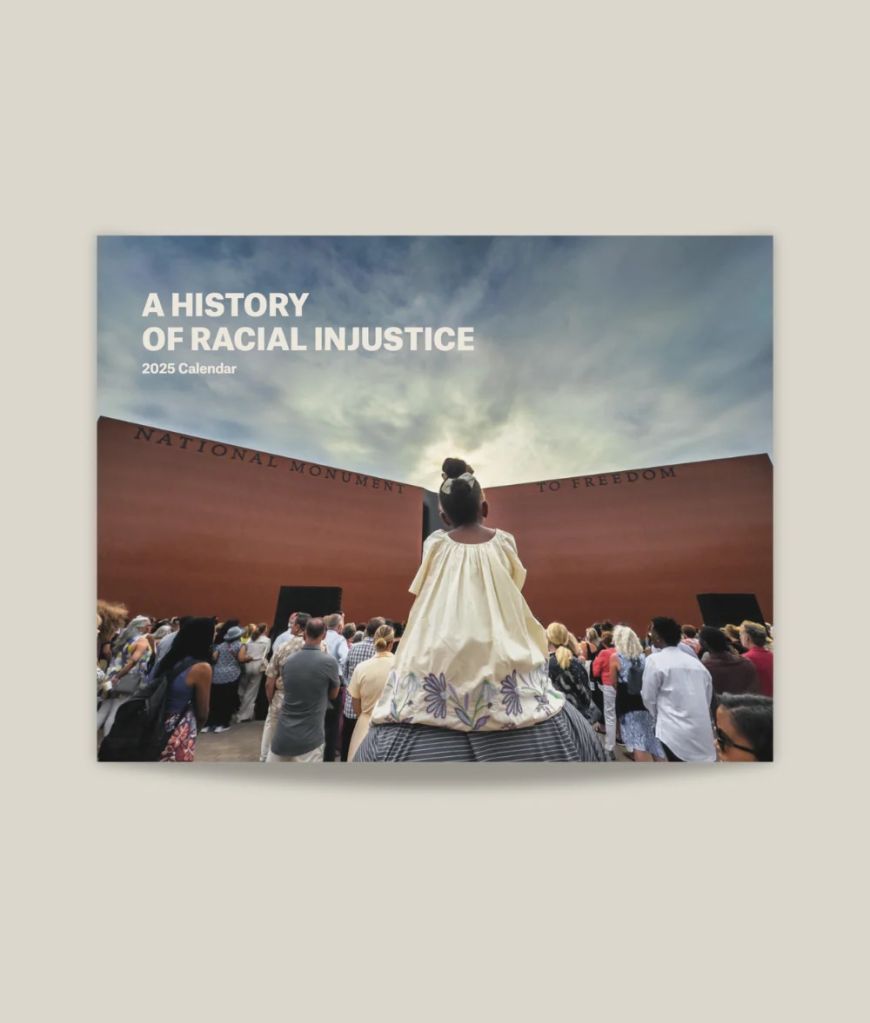EJI’s Yearly Calendar Sheds Light On America’s Hidden History Of Racial Injustice

The Equal Justice Initiative (EJI), a non-profit challenging racial and economic injustice, has created an eye-opening calendar filled with the untold stories of America’s insidious racial inequality legacy.
Spanning over two centuries—from the 1800s through the 2000s—the EJI’s “A History of Racial Injustice” calendar is a powerful digital tool designed to shed light on critical but often overlooked moments in American history. Each day, the virtual calendar highlights an event with historical significance, providing richly detailed narratives and easy sharing options to spark reflection and dialogue.
For those seeking a tangible version, EJI’s award-winning wall calendar serves as a valuable educational resource, ideal for classrooms, community centers, offices, and homes. Both formats aim to deepen public understanding of America’s legacy of racial injustice and help chart a path toward truth and repair.
July highlights include the death of Philando Castile and the formation of the first White Citizens’ Council against integration.
Among this month’s notable entries is the 2016 death of Philando Castile. On July 6, Mr. Castile was fatally shot during a routine traffic stop in Falcon Heights, Minnesota, by former law officer Jeronimo Yanez. Although Mr. Castile legally owned a firearm and calmly informed the officer he had it, he was shot multiple times at close range, with his fiancée and her four-year-old daughter in the car. The shooting sparked national outrage and added to the ongoing calls for police accountability and justice in the face of systemic violence against the Black community.
Today, July 11, also marks the painful anniversary of another chapter in America’s long resistance to racial equality. On this day in 1954, white residents in Indianola, Mississippi, formed the first White Citizens’ Council, just weeks after the landmark Brown v. Board of Education decision. While less openly violent than the Ku Klux Klan, these so-called “Uptown KKK” groups used economic coercion, intimidation, and political power to prevent school desegregation and maintain white supremacy.
The White Citizens’ Councils were led by businessmen, pastors, and civic leaders who weaponized respectability and social standing to retaliate against those—Black or white—who supported integration. In South Carolina, 17 Black parents were fired or evicted after signing a pro-integration petition. In Mississippi, the Yazoo County council published the names of petition signers in a newspaper ad, leading to job loss, harassment, and the eventual collapse of the local NAACP chapter.
Though the councils claimed to reject violence, their impact was devastating. Their tactics proved so effective that by the fall of 1960—six years after Brown—every Black child in the five Deep South states still attended segregated schools. Even by the 1964–65 school year, fewer than 3% of Black children in the South attended integrated schools. In states like Alabama and Mississippi, that number hovered below 1%.
Why It Matters
EJI’s calendar invites us to engage with these stories, not as distant relics of the past, but as living truths that continue to shape our present. By confronting this history, we open the door to understanding, accountability, along with “truth and reconciliation.”
The EJI added in a statement, “As a nation, we have not yet acknowledged our history of racial injustice, including the genocide of Native people, the legacy of slavery and racial terror, and the legally supported abuse of racial minorities. When we engage truthfully with our history, we are better equipped to address contemporary issues ranging from mass incarceration, immigration, and human rights to how we think and talk about cultural moments and icons.”
Take a look at the EJI’s “A History of Racial Injustice” calendar here.
SEE MORE:
Activists Kick Off Criminal Justice Reform Festival In Philadelphia




